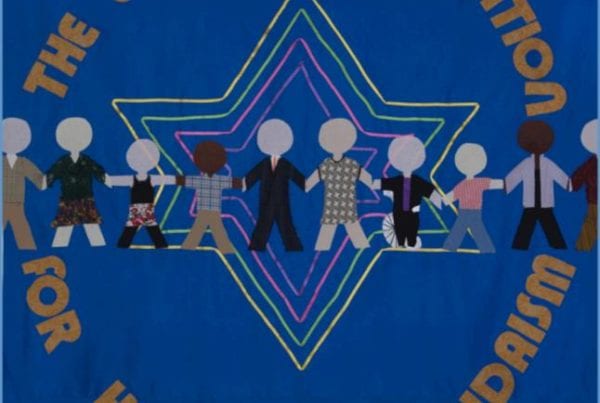DESPAIR
Jennifer Naparstek Klein, Psy.D.
When I heard last year that Robin Williams had taken his life, and in such a desperate seeming way—with a dress belt to his neck—to cause himself the most pain , and to cause whomever found him to also feel unbearable pain, I wondered how? Why? I know when I think about the lives of celebrities, I fantasize about how happy their lives must be…we all know, and I, as a psychologist know that of course, this is not true. People from all walks of life experience depression, despair, desperation. But…Robin Williams….for me, the source of such humor, depth of emotion, he was Mork from Ork, for goodness sake! How could the man who created Mork from Ork choose to take his own life?
I’m not going to talk today about clinical depression and suicide, because while these are compelling topics, they are not necessarily relatable to all of us. What feels more common, and something we’ve all probably been prone to at different junctures in our lives, is despair.
Initially when Peter asked me to think about despair, I ran a quick, almost computer-scan-like review of my client lists since I joined my group psychology practice in 2001. While I cannot give any identifying details, I will tell you some general information that I suspect will assist in our discussion. There are certain life events that tend to bring individuals to therapy, and these events often create pain…pain that feels life-altering, unremitting. As a therapist, it’s fairly important to have a certain neutrality, so that the emotions explored in the therapy room, certainly, are not mine! But these clients, in talking about their particular circumstances, and in how they experienced their pain, have a real impact on me because, I think, these are real life stories and not really uncommon—these stories happen to many of us, or we have our own version, our own story.
So—here are some portraits of amalgams of clients who experience despair—these depictions are representative of stories that are frequently brought to my office, and are not about one specific client:
One client had recently been told by a spouse that the spouse wanted a divorce, after decades of marriage and teenage children. Such a client feels the rug of life pulled out from underneath—as if having to completely rethink a life plan, and the children’s life plans. This client’s anguish is so palpable, and painful to observe. She really cannot envision the rest of her life, the view is blank. All that is visible is what is missing.
A second client is the one affected by the economic downturn. Some of the clients I see in Westchester are very strong earners, and when there is a job loss, or a series of job losses (which can happen on Wall Street since last in is often the first out during downsizing) the family’s financial future can be practically erased. With children to send to college, and a certain level of life to maintain in their particular wealthy neigbborhood, the real prospect of financial ruin is positively devastating. This client can feel such a sense of shame and alienation in their community—as if no one else understands. I’d like to add that you don’t have to be a laid off wall streeter to know the challenges that come with job loss and financial struggle.
Another client is the one who was further along in life—the empty nester who has been planning for a lovely, peaceful, easy retirement with a spouse –suddenly confronted with a spouse’s deteriorating illness, and therefore the hopes for that beautiful retirement are dashed. He can feel utterly powerless to help their spouse or themselves, and robbed in this stage of life, when many friends are traveling, enjoying, and celebrating their grown children and grandchildren.
My final example of excruciating despair in the therapy room has to do with sexual or gender orientation. I have had a multitude of clients who have faced a new awareness, and the accompanying anguish, of a sexual and gender orientation that is different than what was expected by themselves and their families. The family piece is a giant part of this puzzle—For some, the unbearable fear of feeling alien in one’s own family is a fear and a pain that can cause them to feel like life is just not worth it.
In all of these situations there is a common thread—the idea of an uncertain or an unhappy future, and a feeling of powerlessness to change it. Even further, what is also common to all three is the dashing of life’s expectations, or one’s life’s plan—to be married, to be financially comfortable, and to have a joyful autumn of one’s life, or to simply fit in with mainstream culture. My clients had plans. They built their lives around these dreams, they sometimes brought children into these constructs, and something happened to obliterate those plans, or alter them irreversibly. Change, reinvention, adjustment. These life situations can be so incredibly difficult.
Sometimes, to weather such storms, it just takes one trusted person to say, “Hey, it’s OK, I’m here…” or “I’ve been there, too.” Also, a reframing of one’s life plan, one’s expectations. This requires a massive dose of…perspective. Looking at the same life from a different vantage point. Often it also simply takes time to persevere…to grow into the new circumstance or identity: myself as a divorced parent, myself as the caretaker of an unwell spouse, myself as someone for whom money does not come easily, myself as LGBT. We wear a new cloak, and sometimes the cloak will even fit cozily at some point, and bring new lessons, experience and understanding. I like to think that therapy speeds that process along—by having someone who KNOWS your pain, gets it, even shares it to a small degree, and like a tugboat, pulls you through uncharted waters to safety.
In my experience, how the despair is felt depends on two things—how great the stressor, and also, how mental health meets the stressor. Herein lies the difference, I believe, in what it is like to handle life’s curve balls with resilience, versus emotional vulnerability. When people experience life-changing stressors, fairly stable individuals can be upended, at least temporarily, but mostly they’ll right themselves eventually. When someone with emotional vulnerabilities, on the other hand, comes face to face with stressors, large or small, it is often as though swimming in the ocean, when you feel wave after wave come and toss you around, and the undertow tugs on your footing. Just when you can feel the sandy, rocky floor under your feet, or gasp for air, you’re knocked down and under again. These upending waves are the equivalent of episodes of depression or anxiety, or other such issues. This is where recovery and reinvention becomes a much more laborious process. For individuals living in despair, there is hopefully a HOOK that tethers them to life. For the man on the Golden Gate bridge to whom Peter referred, it was his daughter. For clients of mine, it has come down to a pet—a cat—the difference between choosing to live or die.
In Joe Biden’s speech to the parents of lost servicemen that he gave before the recent untimely death of his son, Beau, Biden referred to his own earlier losses. He spoke of the moment when he received the phone call about his young family’s fatal crash, and the death of his then wife and younger child. He said, “I’d been to the top of the mountain, and knew I’d never get there again.” This is the crux of despair—this hopeless feeling—the devaluing of one’s own life given a new wrenching reality. Joe Biden is such an inspiration to me because I, personally, cannot imagine coming through what he has experienced, and yet….he perseveres. And this new loss of his son, Beau—and still Biden perseveres. It’s amazing.
In 2003, July through December, I briefly stood shoulder to shoulder with despair. I had two consecutive miscarriages, and this experience was quite challenging to my own dream for my life. These occurred after Caleb, and before Jordan. When I was thinking about despair for today, I thought immediately of this experience, and I will tell you that I rarely, or more accurately, never, go back to that half of a year. In fact, when I thought of mentioning it today, I had to ask David….twice….to tell me what happened. I could not remember. For a time that was so emotionally painful, and even physically devastating, I absolutely could not recall how it transpired. The memory is a jumble of doctors, procedures, horrible physical experiences, all blended with the knowledge that these babies would not be mine—would never be mine. Mark Zuckerberg and his wife, Priscilla Chan recently posted on Facebook about their pregnancy, sharing with billions that they previously, over 2 years, went through three miscarriages. They wrote, “You feel so hopeful when you learn you’re going to have a child. You start imagining who they’ll become and dreaming of hopes for their future. You start making plans, and then they’re gone. It’s a lonely experience.” I will tell you that what got me through that time was—having David in my life, and having Caleb in my life—my two hooks. Also, while some hopelessness crept in, I maintained some hope—knowing I had already had a child gave me hope I could do so again. I suppose deep in my heart, I held onto the belief that I could get back to the top of the mountain—the mountain that is the vision for my life. And then I had Jordan by the following year—just by chance this problem came to resolution, so I actually was fortunate enough to overcome this period of despair, and thus able to tuck it neatly into some distant memory bank, never to take it out to unfold and view again, until now.
I’d like to add, finally, that what we do here—what I am doing now, is a way we as a community help each other. When I look around this room, I know some of your difficult journeys. I have appreciated how you’ve bravely shared them with us in these forums we have, and I have appreciated the chance to share mine with you. This is a GOOD way for us to travel side by side through life, holding each other’s hands through joy and pain, celebration and despair. Thank you all, and I wish you all a year of joy.



